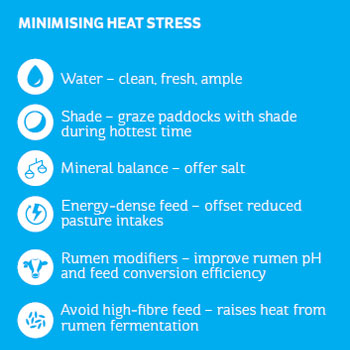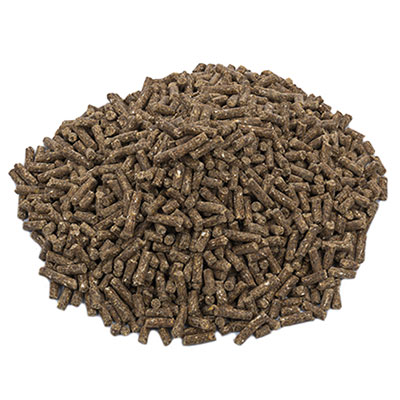Dairy Advice - Summer
Beat the Heat this Summer
It’s no secret that cows don’t like the heat; their bodies are simply better suited to lower temperatures. When subjected to heat and humidity they struggle to regulate their thermal balance and respond in two ways: they disperse heat by panting and drooling, and they reduce the ‘internal’ heat production that results from rumen fermentation. Cows will therefore reduce forage intake and eat primarily during cooler times of the day.
Typical outcomes of this behaviour are a lower rumen pH, poor degradation of fibre and risk of SARA (sub-acute rumen acidosis), ultimately manifesting in reduced milk solids production.
SealesWinslow Nutrition and Quality Manager, Wendy Morgan, suggests tackling the issue in two ways. Firstly with good management by ensuring ready access to fresh, clean water; this is especially important directly after milking. “Be sure to check water troughs for level and flow rate,” she recommends. “And keep bacteria and algal blooms at bay with regular cleaning. Over time, plant material, soil and other matter builds up and can lead to toxic compounds as it decays.”
Also, don’t forget about shade! If at all possible, leave paddocks with more natural shade to be grazed during the hottest periods.
The second line of attack is a feeding strategy with a focus on quality. It pays to avoid high fibre content as it raises the fermentation in the rumen and consequently increases the heat load on the cow. “To maximise pasture intakes, grass needs to have good sugar levels and sodium content,” says Wendy. “A superb all-round option is an energy-dense feed, ideally a pellet containing protein and starch, as it helps to counteract the reduced dry matter intake.”
Then there’s the mineral balance: offering salt encourages water intake and helps restore mineral reserves that are depleted from sweating and drooling. It’s hard to believe, but slobbering 100L/day is not uncommon for a hot cow!
And lastly, Wendy advises rumen modifiers for improving the rumen environment. She recommends an additive like Levucell, as it improves fibre digestion and utilisation of nitrogen. “This helps the animal effectively convert feed into milk solids, while also reducing the risk of SARA.”
Feed conversion efficiency in heat-stressed cows can also be reliably boosted with Rumensin®.
Contact your local sales rep for a more comprehensive overview of how SealesWinslow products can help you reduce the effects of heat stress.


Maxi Pro
Balances the diet as pasture changes occur to help maintain post peak milk production, so income can be maximised.

